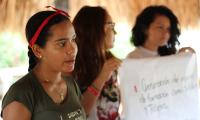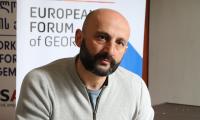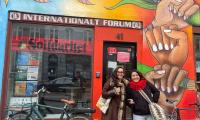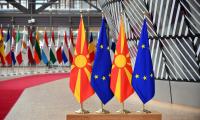Action plan for ligestilling
Achieving gender equality in politics takes commitment. Parliamentarians in Bhutan came together on a workshop organized by the DIPD partner BNEW, committed to act. They agreed on an action plan to encourage women participation in politics and leadership. The plan includes legislative, policy and budgetary measures.

Members of members of both Houses of the Parliament of Bhutan (National Assembly and National Council) gathered for 2 weeks of workshops on gender scrutiny. The work resulted in an ambitious action plan, that encourages politicians across parties in the parliament to take action in order to support women participation in politics.

One of the hot topics of the workshop was how to increase awareness on the gender equality agenda in the Bhutanese parliament. The workshop agreed on an approach that calls on the whole parliament to explore ways of addressing obstacles that are holding women back in politics. When parliament puts gender on the agenda in this manner, it can push awareness in the population at large. Chairperson of the Women, Children and Youth Committee of the National Assembly, Dorji Wangmo, said:
- Gender disparity in social norms and culture is caused by many people still believing that women are nine times inferior to men. Through this workshop, MPs are expected to create awareness among the rural communities during constituency visits.
One way to combat inequality is by including more women in decision making processes. Political parties can be seen as gatekeepers to increasing female representation, as they are the ones nominating political candidates.
The members of Parliament at the workshop propose a ratio of 30 percent women nominations in political parties, executive positions, constitutional bodies and the judiciary. Setting this standard will address the issue of low representation of women in politics and leadership. It will promote the equality agenda and encourage more women to be part of politics by pushing the parties to change their mindset and strategies.
Deciding on specific tools
Role models are a proven tool internationally and the workshop finds the method important because it demonstrates that it is possible for women in Bhutan to make it in politics. The MPs discussed that having a pool of women role models to pave the road for aspiring female politicians will be an advantage. At the same time, the parliamentarians highlighted the need to make sure that women can empower each other through networking. They will encourage this by creating a long-term plan for institutionalizing a women leadership platform.

Getting more women to participate is one part of the agenda. Another is making sure that all decisions are inclusive and takes the gender perspective and -challenges into consideration. The workshop developed a set of tools to assess parts of legislation from a gender perspective. The specific tools were:
- Putting gender on the agenda from the beginning
- Gathering evidence on gender
- Asking the right questions
- Inspiring change
- Monitoring the actual outcome
As part of their Action Plan, the MPs have listed various pieces of legislation that need to be put through the gender scanner. In preparation for an upcoming session, they agreed on the need to carry out a gender audit of national budget 2020-21 since budgets tend to be gender-neutral/gender-blind most of the time. Inspired by some of the international inputs during the workshop MPs felt the need for further training on gender-responsive planning and budgeting and proposed to revisit the resource allocation formula used by the Ministry of Finance.

Gender equality is not only a political issue, it is also a structural question. As Dechen Wangmo, Minister for Health & Chair of Bhutan Women’s Parliamentary Caucus put it:
- We need to work on the issues close to home first before moving to the structural issues. The challenges of balancing motherhood and other obligations is still an issue occupying women in Bhutan.
The structural issues of ensuring trust in women as leaders is essential. That is why it must become both obvious and accepted that it is possible to balance the different roles women take on. Part of the action plan is to promote the gender equality agenda in rural areas as the local governments are even more behind on the gender agenda. Phuntshok Chhoden, executive director of BNEW, pointed out:
- Formally we have equal opportunity for women to participate in elections. However, at the latest election, only nine women were elected to parliament out of 72 members. The representation is even less in local government elections. Only 2 women out of 205 local governments are women.
Therefore, it was also part of the action plan to create awareness and advocacy programmes during constituency visits to address social, cultural, and traditional barriers that discourage women from participating in elections.
In Bhutan Bhutan Network for Empowering Women, INTER PARES – Parliaments in Partnership and DIPD organised a workshop for the parliamentarians. The topic of the workshop was gender scrutinization of legislation, policy, and budget.
This page is also available on the english site. Click on english in top menu.

Ensuring a culture of democracy and more women in politics in Bhutan
DIPD partners with the Green Left and local partners in Bhutan on strengthening democracy and Women’s Participation and Representation in Governance, Leadership and Politics in Bhutan.



